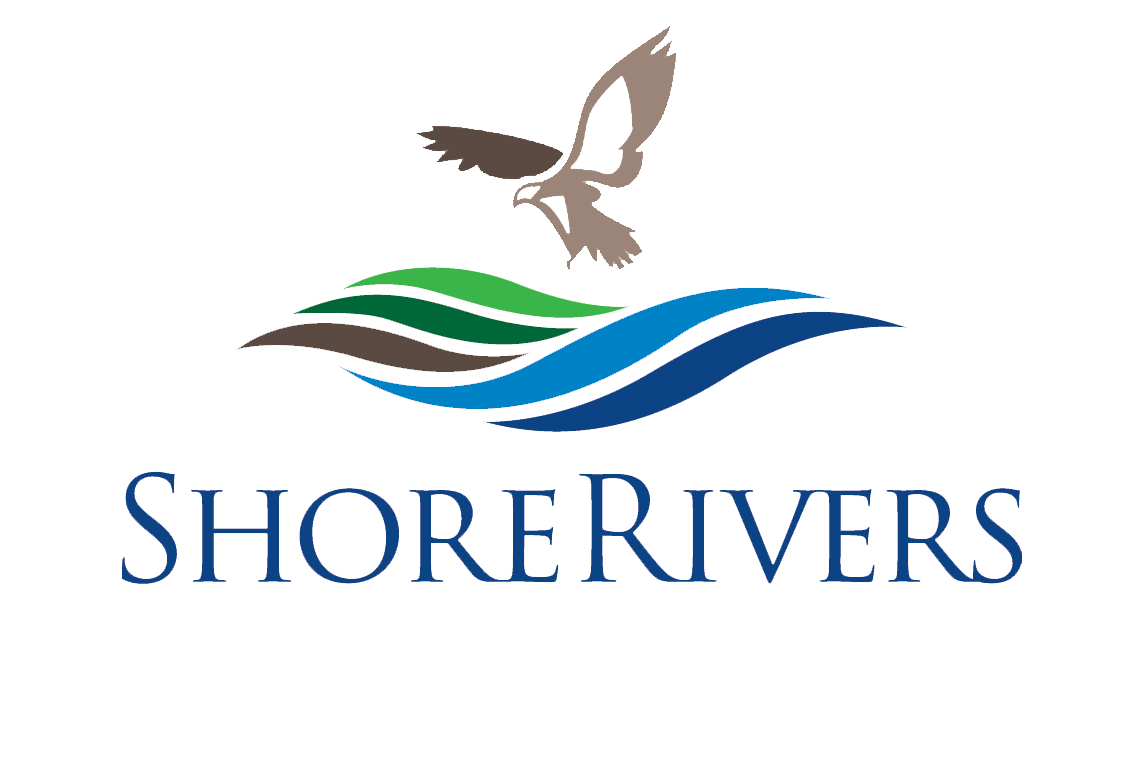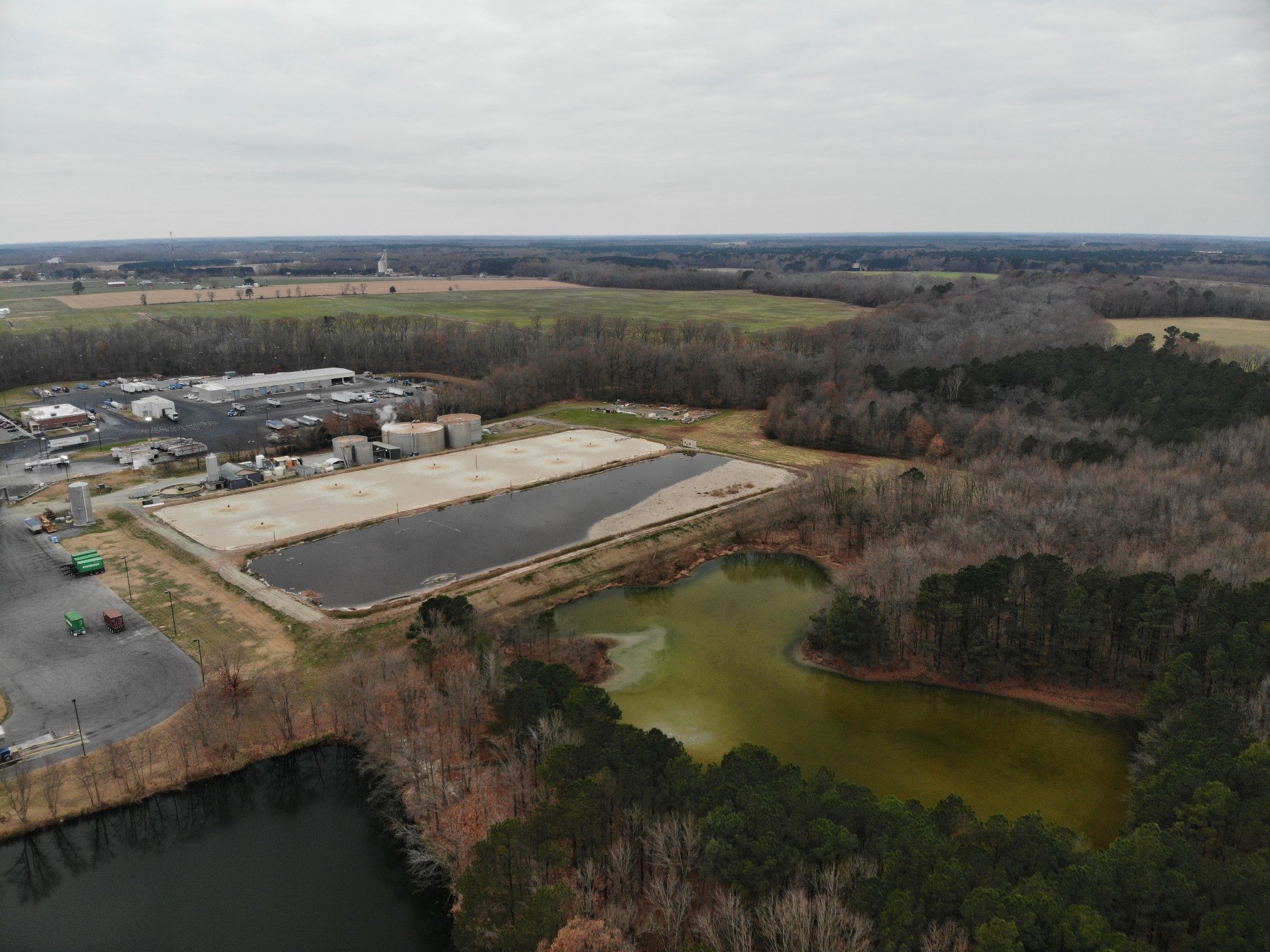Pictured is the Valley Proteins rendering facility in Linkwood, MD. The facility’s permit expired in 2006, and has been administratively continued since then, allowing them to retain the same permit terms for more than two decades.
The Maryland Department of the Environment (MDE) has been in the spotlight for many reasons during this legislative session, including chronic understaffing and lack of enforcement. In January, the Senate Education, Health, and Environmental Affairs committee invited Secretary of the Environment Ben Grumbles to provide an overview of the Department’s shortcomings and plans to improve staffing and enforcement. This briefing emphasized the need across many divisions at MDE for an increase in qualified staff to inspect facilities and conduct permit renewal processes.
Accountability and enforcement are keystone issues for ShoreRivers, and one component that we’ve focused on for the past few years is administratively continued permits, commonly known as zombie permits. When a wastewater discharge permit has expired, as long as a permittee has submitted their application to renew, MDE will extend the permit so the facility can operate on their existing terms indefinitely until the permit is actually reviewed. Currently, there are about 30 facilities on the Eastern Shore operating on zombie permits, carrying over outdated permit limits and in some cases allowing continued operation without the best available technologies in place.
Discharge permits are issued for five-year terms, but in some cases these permits are in place for decades because MDE cannot keep up with the volume of permit renewals. This becomes particularly problematic when facilities violate their permit terms for effluent limitations or reporting requirements – they’re not only operating on an outdated permit, they are also in significant noncompliance with said permit. The prime example for this on the Eastern Shore is the Valley Proteins rendering facility in Linkwood, MD. The facility’s permit expired in 2006, and has been administratively continued since then, allowing them to retain the same permit terms since 2001, or more than two decades. Extensive violations have been identified at the rendering facility, and MDE only addressed these violations because of evidence provided by ShoreRivers in December of last year.
“A facility operating in significant noncompliance of a zombie permit is the ultimate one-two punch to water quality and the entire permitting system designed to protect it. The sheer number of zombie permits and facilities operating in significant non-compliance around the state is evidence that MDE has failed to do its job and uphold its obligations under the Clean Water Act,” said ShoreRivers Director of Riverkeeper Programs Matt Pluta.
Not only do zombie permits in significant noncompliance result in degraded rather than improved water quality, as we’re seeing in the Transquaking River into which Valley Proteins discharges, but administratively extending these permits for many years deprives the public of the opportunity to comment. Public comment is part of the permit renewal process and is a foundational aspect of the Clean Water Act. Since these permits are not being updated in a timely manner, residents in the watershed where these zombie permits exist do not have an opportunity to publicly voice their concerns.
Legislation has been introduced this session to address staffing at MDE, the backlog of zombie permits, and facilities in significant noncompliance with their discharge permits. Specifically, the bill will require the agency to request sufficient positions to carry out their responsibilities and to fully address the backlog of zombie permits by 2026. Additionally, monthly inspections will be required for any facility in significant noncompliance with their permit. There are over 100 operations on the Eastern Shore in significant noncompliance, leaving our waterways vulnerable to excess pollution.
The bill (SB492/HB649) went before both the assigned House and Senate committees in late February, with robust support from clean water advocates across the state. Pluta testified in support of the bill during the Senate hearing alongside fellow Waterkeepers. “This legislation will bring MDE back up to the standard we expect and deserve in order to protect water quality and the communities that depend on it.”
To learn more about ShoreRivers’ work on enforcement and zombie permits, please contact Director of Riverkeeper Programs and Choptank Riverkeeper Matt Pluta at mpluta@shorerivers.org. To write to your state legislator in support, please visit shorerivers.org/advocacy.

